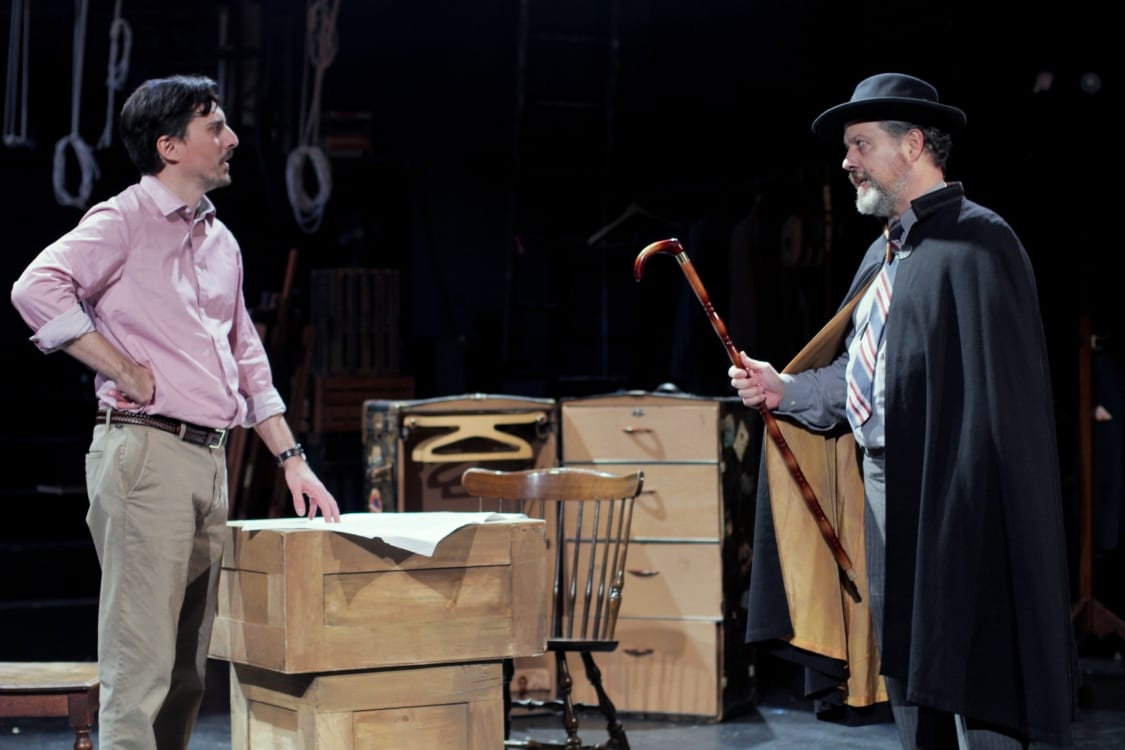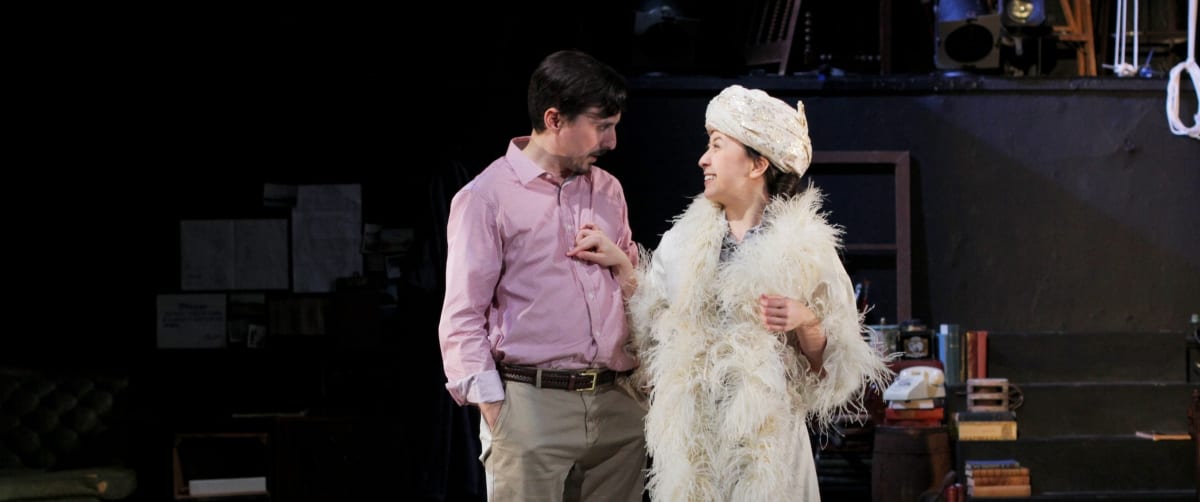There’s a particular challenge in trying to portray genius, which consists so much of the ineffable—in the case of Frank Beacham and George Demas’s Maverick, the genius of Orson Welles. In this pleasant and meandering memory play, presented by the Cliplight Theater, we are told over and over that Welles was a genius, an aesthetic revolutionary, but we are never really shown this, and Welles and the many other characters who populate the play feel like only the outlines of people.
Maverick depicts the 1985 would-be collaboration between Welles (George Demas) and video production company owner Frank Beacham (coauthor of the play, portrayed by Stephen Pilkington). Beacham’s company produces the vapid Lifestyles of the Rich and Famous, but he seems to want to be part of something with artistic integrity. Plus he has a new device, the Betacam, which was the first handheld camera-recorder combination. This technology could allow Welles—age seventy, working on the outskirts of the industry, constantly hustling for financing for ambitious projects such as King Lear—to bypass the studios that had so often betrayed him, and exert full creative control, on a relatively low budget. We’re not given much detail about what exactly “this great artistic endeavor” that would “change the playing field forever” (as the press release has it) is, though knowing Welles, who made an indelible mark on theater, radio, and film, the description is likely not hyperbole.

The play indulges in the metatheatrical, with both Frank and Orson narrating: “It’s obvious you’re a narrator…. You’re standing on a stage as we speak,” Orson says to Frank. And so Frank can set the scene for the flashbacks of Welles, and vice versa. We see Orson arguing with his producer John Houseman (also played by Pilkington) over Citizen Kane, or being told by the studio that they’ve recut Touch of Evil (the latter being the final indignity in Welles’s Hollywood career). All of these journeys through time are accomplished on Tekla Monson’s strategically cluttered and elegant set that makes great use of the Connelly Theater as theater, and with David Zeffren’s exquisite lighting design. Demas does an excellent job of capturing Welles’s diction and rhythm—a kind of jovial formality that can turn easily into hostility or rhetorical excess. The portrayal, however, lacks a sense of Welles’s mischievousness, humor, and intellectual heft—watch just a few minutes of Welles chatting with Dick Cavett on YouTube, for example, and you’ll see a glorious mind at work.
The play has two fundamental problems. First, it is overstuffed with short scenes and undeveloped characters: many of the flashbacks, especially the ones of Frank chatting with coworkers, seem unnecessary, imparting neither crucial information nor doing any thematic heavy lifting. Second, Frank himself never emerges as a full character (ironically, I suppose, since Beacham is a coauthor). Here is Frank risking everything, recklessly adhering to Welles’s every whim—but why? We are given the occasional paean to Welles’s genius, and vague hints that Frank longs to move beyond materialism and be part of something transcendent and lasting (though his passion, such as it is, seems to lie in radio, not television or theater). But ultimately he’s a cipher, and despite a posthumous pep talk of sorts from Welles, we don’t really feel how this extraordinary experience has affected him, even while we’ve enjoyed spending some time ourselves with Demas’s Orson.

